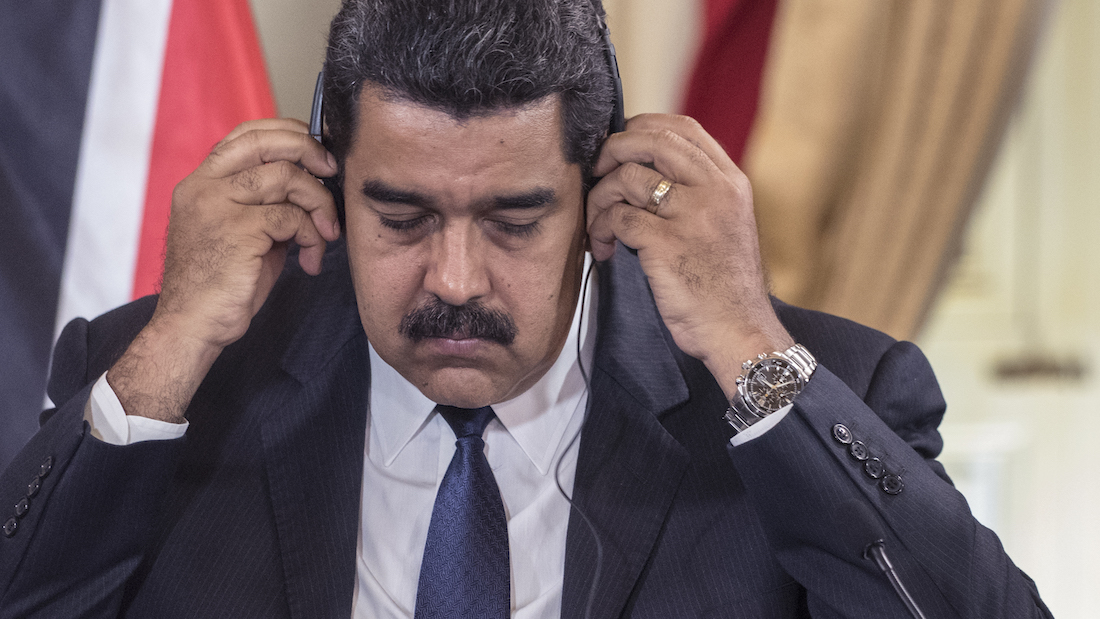The birth of a child is life’s greatest joy – unless a dictator is asking you to have children to increase his personal power base, and he has destroyed the economy so badly that you can’t feed yourself. That is the situation in Venezuela.
“Every woman should have six children for the good of the country,” said Bolivarian socialist Nicolás Maduro in March. He urged the nation’s women to “give birth, give birth” in order to “grow the country.” In so doing, he joins such unfree nations as his staunch allies Iran and China in brazenly attempting to manipulate his country’s birthrate for national objectives.
It is precisely those objectives that decimated the nation’s once-booming economy and, with it, its population in the first place. At least 4.6 million Venezuelans have fled the intolerable conditions produced by his economic policies. Meanwhile, Venezuela’s ever-declining birthrate fell to 2.27 in 2018, barely above replacement level.
Maduro made a plea for refugees to return home at the outset of the COVID-19 outbreak, promising to embrace them “with love and open arms.” Then he turned those who did, like former Adventist pastor Juan Meza, into scapegoats for the nation’s rising coronavirus rate. Some officials called them “biological weapons.”
A dwindling population further contracts the economy. And burgeoning dictators have long found it easier to indoctrinate children than to convert their parents. Thus, Maduro turned his eyes on increasing fertility.
Conditions became so lean under the socialist policies of Maduro and Hugo Chavez that Venezuelan women began seeking out voluntary sterilization in large numbers. The number of abandoned children increased by 70% in 2018 – prompting outraged citizens to erect signs that read, “Dumping babies is prohibited.” Others sent their grown children to live with relatives or strangers, creating a new socialist milestone: the redistribution of children.
Venezuela lacks the infrastructure to support a baby boom, even if the nation’s mothers were willing. “Sixty-six percent of the biggest hospitals in Venezuela do not have running water,” said Dr. Julio Castro of the Central University in Caracas. And the Venezuelan Ministry of Health pays his fellow doctors in its national healthcare system as little as $2.50 a month. The healthcare crisis is the predictable outcome of socialized medicine.
No sirven los hospitales, escasean las vacunas, las mamás no pueden lactar porque están desnutridas y menos comprar fórmula porque es impagable, migración forzada por la emergencia humanitAria. DISOCIACIÓN PSICÓTICA TIENE MADURO Y TODO EL RÉGIMEN cuando dicen cosas cómo estás. https://t.co/2ayRaPQRv6
— Manuela Bolívar (@manuelabolivar) March 3, 2020
If Maduro hoped to lure back expatriates or create conditions that make women less petrified to give birth, he could begin by freeing his nation’s economy. A recent study found that the infant mortality rate is eight times as high in the least economically free nations as in the most economically free countries, and mothers were 30 times more likely to die in childbirth. “Women living in economically free countries live longer, are healthier, have healthier children, are better educated, and have more success in the labor market and greater financial independence than women living in places that lack economic freedom,” wrote Rosemarie Fike in the Fraser Institute’s 2020 Women and Progress report.
C.S. Lewis seemingly predicted Maduro’s double-minded policies in his essay “Men Without Chests,” which appears in The Abolition of Man:
[W]e continue to clamour for those very qualities we are rendering impossible. You can hardly open a periodical without coming across the statement that what our civilization needs is more ‘drive’, or dynamism, or self-sacrifice, or ‘creativity’. In a sort of ghastly simplicity we remove the organ and demand the function. We make men without chests and expect of them virtue and enterprise. We laugh at honour and are shocked to find traitors in our midst. We castrate and bid the geldings be fruitful.
In the case of Venezuelan women, the castration is altogether too literal.
(Photo credit: Eneas De Troya. CC BY 2.0.)

